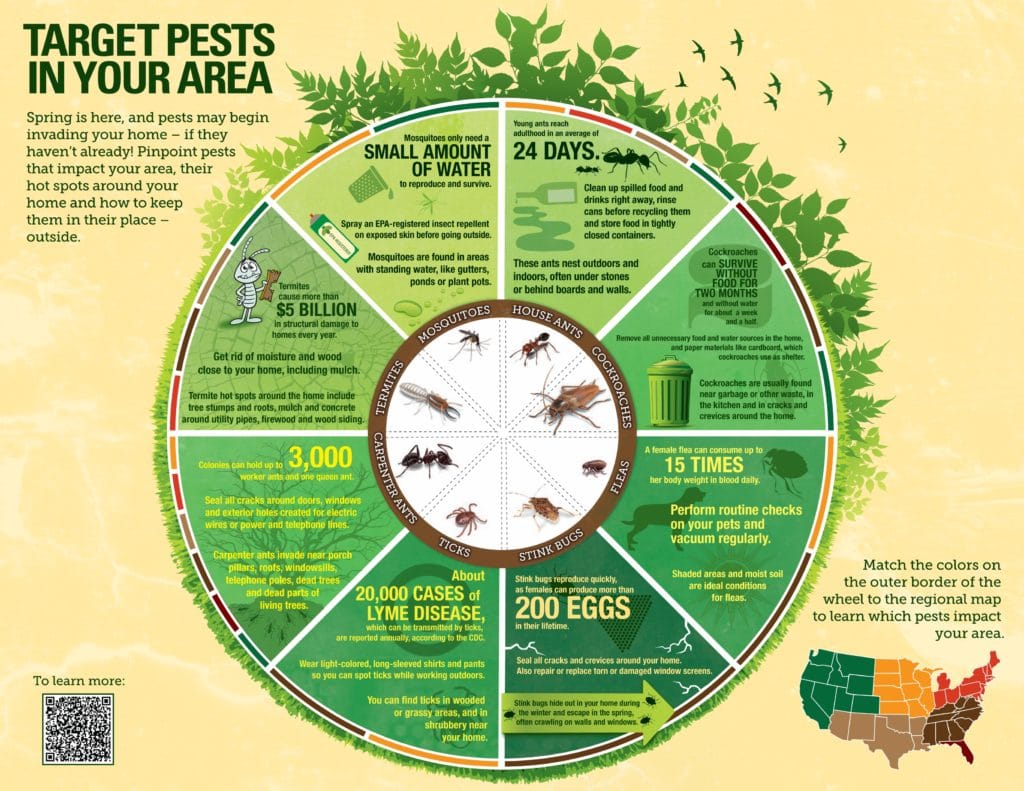Right Here Are Some Essential Tips To Help You Keep Your Facility Devoid Of Unwanted Bugs
Right Here Are Some Essential Tips To Help You Keep Your Facility Devoid Of Unwanted Bugs
Blog Article
gopher pest control Created By-Kuhn Camp
Are you an entrepreneur who intends to banish aggravating pests from your bustling bistro? Look no more than these necessary suggestions to maintain your restaurant pest-free!
From protecting against parasites from entering your facility to keeping remarkable sanitation, these tried-and-true strategies will make sure a critter-free dining experience for your valued customers.
So, if additional Info prepare to guard your restaurant's online reputation and shield your bottom line, read on to uncover the secrets of efficient pest control in the food market.
Bug Avoidance Measures
To keep your restaurant pest-free, take proactive steps to stop pests from going into and infesting your facility. Begin by making certain that all entrance factors, such as windows and doors, are effectively sealed. Mount screens and climate removing to maintain insects out while still permitting air flow. Regularly inspect these locations for any type of signs of damages or voids that could function as access points for pests.
Along with sealing access points, it's important to preserve cleanliness and cleanliness in your restaurant. Keep all areas, consisting of the kitchen area, dining area, and storage space spaces, tidy and without food debris. Regularly dispose of rubbish in sealed containers and guarantee that they're correctly covered.
Execute a rigorous parasite control program by employing a specialist insect administration company. They can on a regular basis check and treat your establishment for parasites, ensuring that any infestations are without delay resolved.
Reliable Cleaning and Sanitation Practices
Keeping cleanliness and sanitation in your dining establishment is vital for reliable insect prevention and control. Routine cleansing methods need to be executed to make sure that your dining establishment stays without insects.
Begin by developing a cleansing routine that consists of daily, weekly, and regular monthly jobs. Daily tasks might consist of wiping down surfaces, sweeping and wiping floorings, and cleansing and sanitizing food preparation areas.
Weekly tasks could include deep cleaning tools, disinfecting drains pipes, and washing curtains and furniture. Month-to-month jobs might include cleansing and organizing storage areas and looking for any indicators of insect activity.
It's additionally crucial to effectively take care of garbage and food waste, as these can attract insects.
Normal Parasite Inspections and Maintenance
Consistently scheduling bug evaluations and maintenance is crucial for ensuring the continued pest-free atmosphere of your dining establishment. By performing normal evaluations, you can identify any indicators of parasite task or potential entry factors before they become major problems.
A professional parasite control company will thoroughly examine your facilities, including the cooking area, storage space locations, and eating rooms, to check for any type of indicators of insects such as rodents, flies, or roaches. They'll likewise inspect the exterior of your dining establishment, trying to find any fractures, spaces, or other susceptabilities that pests can make use of.
In addition to evaluations, routine upkeep is essential. This includes sealing any fractures or voids, fixing any kind of pipes leaks, and ensuring proper waste management.
Conclusion
In conclusion, by implementing parasite prevention procedures, maintaining reliable cleansing and sanitation techniques, and carrying out routine bug evaluations and maintenance, you can ensure your restaurant remains pest-free.
Keep in mind, 'an ounce of prevention is worth a pound of remedy,' so take proactive steps to shield your company and develop a safe and enjoyable dining experience for your consumers.
